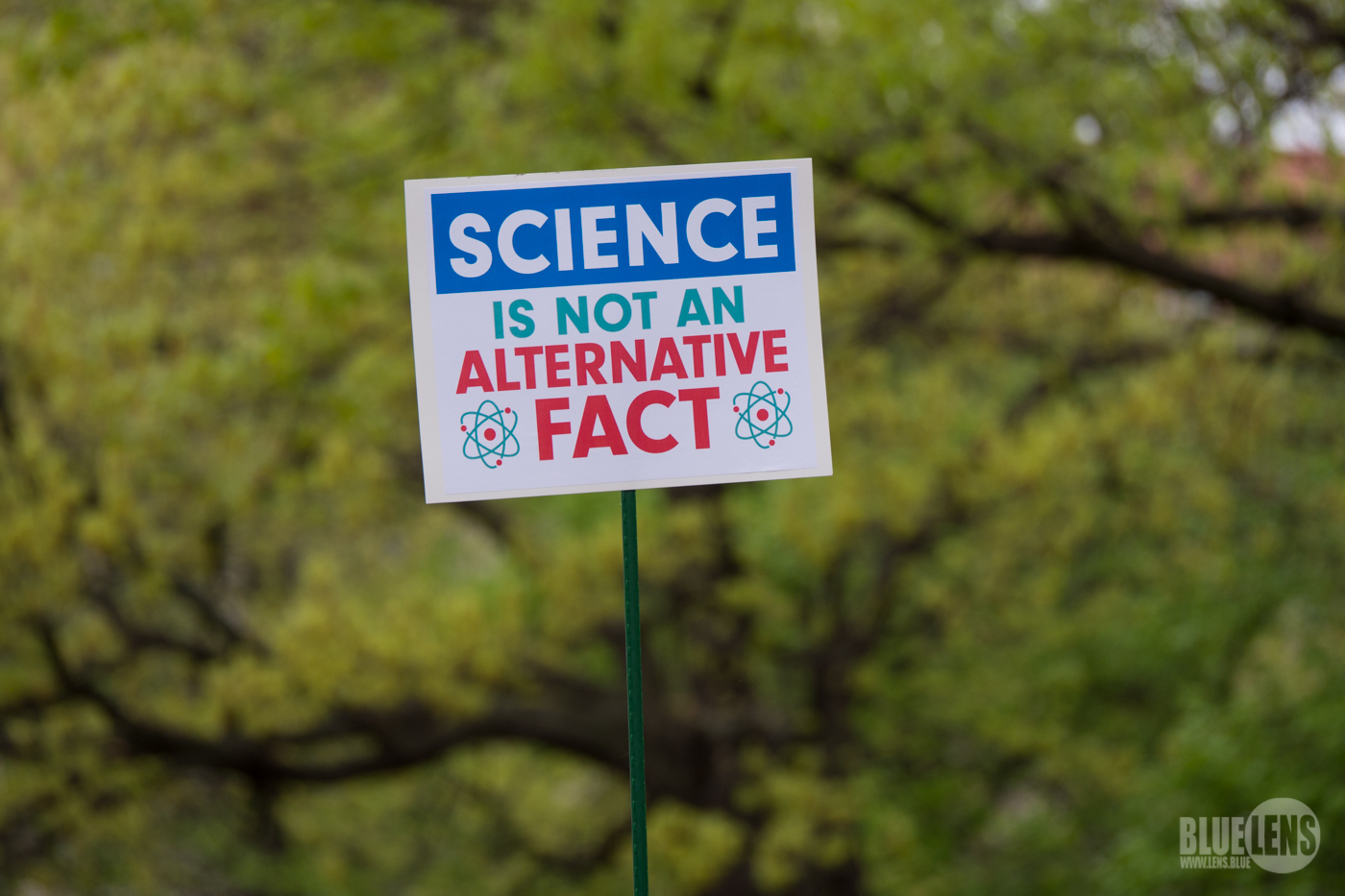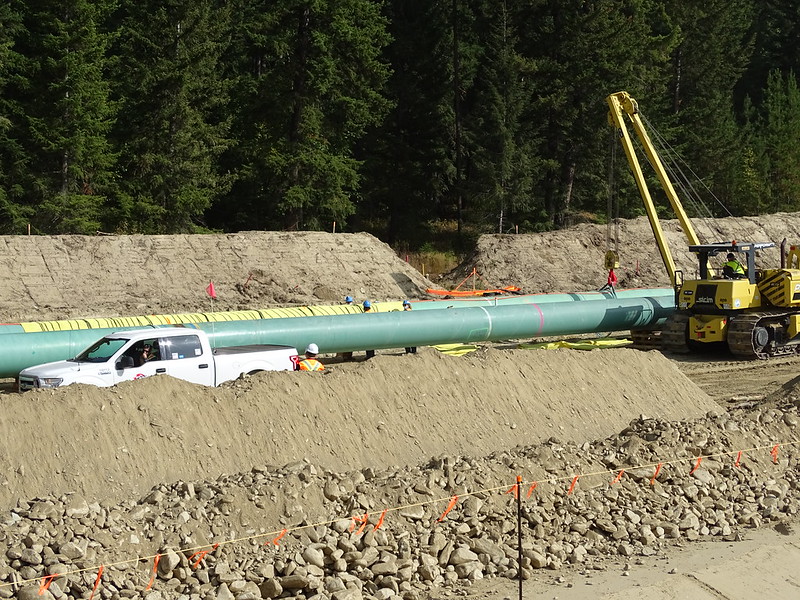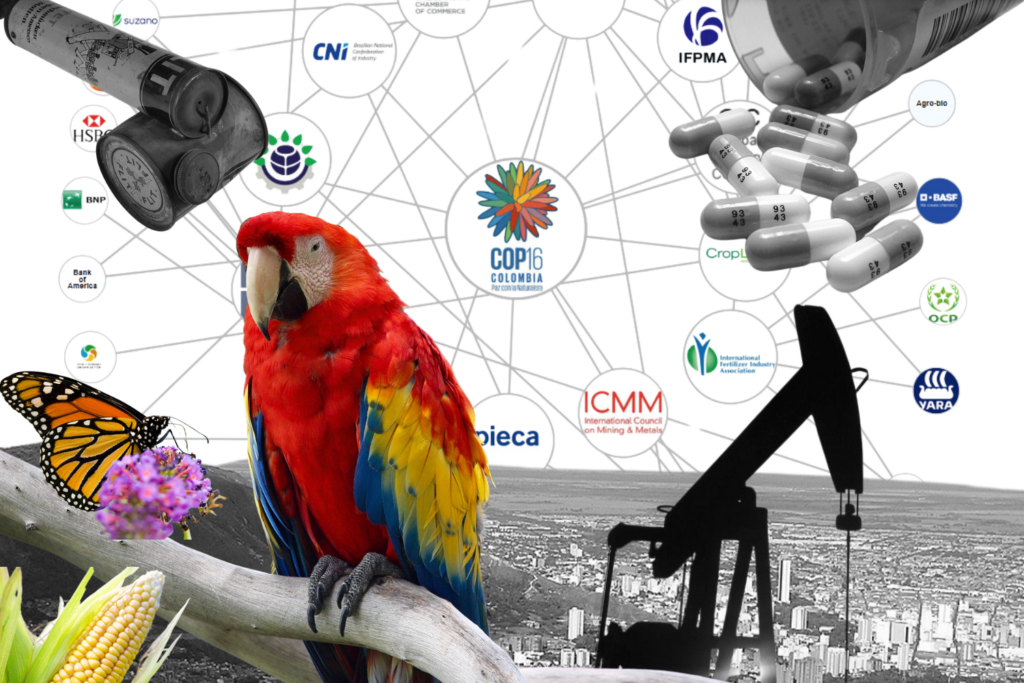From the endless stream of news surrounding Brexit and Trump to devastating extreme weather events across the globe, 2017 has been a monumental year.
So, as the final days of 2017 wrap up and everyone attempts to have a moment of brief relief before kicking off 2018, DeSmog UK takes a look back at the headlines and events that have streamed across everyone’s screens and impacted our everyday lives.
Going month-by-month, here is DeSmog UK’s review of 2017:
January: Trump and Fracking
In January Donald Trump was officially inaugurated as President of the United States. To mark the occasion, DeSmog UK mapped the new special relationship that emerged with his election between the American and British climate science deniers.
Later that month, this ‘special relationship’ was seen in action as transition team member and US climate science denier Myron Ebell was hosted by UK climate denial group the Global Warming Policy Foundation (GWPF).
Meanwhile, in Lancashire, shale gas company Cuadrilla began working on its fracking site. It has been met with almost-daily protests ever since.
February: Brexit Climate Deniers
The short month of February was stuffed full of events hosting pro-Brexit climate science deniers.
Kicking off the month was a conference in Brussels where the climate science denial promoted by the likes of Matt Ridley, Myron Ebell and Daniel Hannan – all in attendance at the conference – were rejected by mainstream European conservative figures including former UK climate minister Lord Greg Barker. He warned that encouraging distrust in experts “is an incredibly dangerous thing to do”.
Book-ending the month was the American Conservative Union’s annual Conservative Political Action Conference (CPAC) which saw UK Breitbart columnist James Delingpole and Nigel Farage on stage with US tea party members.
March: DAPL and UK Climate Change
Protests against the Dakota Access Pipeline reached their height in March after the tribe’s request for an emergency order to stop the pipeline from being built was denied by a US appeals court in Washington. In the UK, we reported how British banks continued to provide funding for the controversial project – something that the Green Party called for an immediate stop to.
Meanwhile, data released that month showed how a record drop in coal use contributed to a drop in UK emissions. And a survey revealed how the majority of the UK public accept that climate change is happening now.
April: Science March and French Election
People took to the streets in April across the world to stand up for science. The Science March began as a reaction to the Trump administration’s anti-science rhetoric but its concerns were not unique to the US. In London, thousands marched on Parliament calling for “science not silence.”
Days later people called for Theresa May to take climate change seriously during the annual climate march.
Also in April were the French elections. This saw Emmanuel Macron elected as the President of France against growing far right opposition. Amidst the anti-climate science atmosphere in the US, Macron quickly stepped up in an effort to be a global leader in tackling climate change. This later saw him host the One Planet climate summit in Paris in December on the two-year anniversary of the Paris agreement as well as successfully courting US scientists to work on climate change in France.
May: Climate Denial in Ireland
As British campaign politics ramped up ahead of the June general election, climate science denial started to heat up in Ireland. As DeSmog UK revealed, a new group was launched in Dublin called the Irish Climate Science Forum. The first two inaugural events saw the group host long-time US climate science deniers William Happer and Richard Lindzen.
DeSmog UK also travelled to Lancashire as one of the first outlets to report on the ground about the ongoing protests against Cuadrilla’s fracking ambitions. In our feature we ask, just how did a mere 25 metres of country road become England’s fracking frontline?
June: UK Election and Brexit-versary
The results of June’s general election took everyone by surprise, including Theresa May and the Conservative party.
Banking on a stronger majority, the impact of the election has seen the Tories become ever more fragmented. DeSmog UK was there to cover it all, from the implications of a hung parliament to where the parties were getting donations from. We also provided an in-depth look at the new climate science deniers on the block: Northern Ireland’s DUP.
June also marked the one year-anniversary of the Brexit vote.
As we reported over the months, scrutiny over how exactly Brexit is going to happen (a question many are still grappling with as the year comes to a close) continues to this day. In the House of Lords, questions have been raised over how the UK will be able to implement and enforce environmental rules once it leaves the EU. DeSmog UK has also taken a look at how much Brexit might cost on risks to energy and the environment.
July: UK Fracking Gets a Boost
Fracking company Cuadrilla had a tricky 2017. But ultimately corporate power, with a little help from the authorities, seems to have won out.
In July, the company breached its planning conditions to smuggle a drill rig onto its Preston New Road site. When asked by planning officers how it would prevent such breaches in the future, it said it would seek to change the rules rather than its behaviour, DeSmog UK revealed.
The company has faced daily protests since Communities’ Secretary Sajid Javid overruled the local council to allow Cuadrilla to frack in Lancashire. DeSmog UK visited the protest twice – in May and June – and found tensions rising.
A DeSmog UK series also revealed that Cuadrilla had sought council help to remove the chair of a community liaison group, and regularly sent vehicles the wrong way into its site despite strict planning rules.
August: BBC Invites Climate Science Denier on Today Programme (Again)
In August, renowned climate science denier Nigel Lawson appeared on the Today programme.
In his interview, Lawson incorrectly claimed that Intergovernmental Panel on Climate Change “has confirmed that there has been no increase in extreme weather events” and “according to the official figures, during this past 10 years, if anything, mean global temperature, average world temperature, has slightly declined”.
The BBC later apologised, saying some of what Lawson “should have been challenged”.
Perhaps the statements were left hanging because the BBC stopped running its specialist science reporting course for journalists at the end of 2012 — just one year after a major review recommended the course was implemented?
September: Mail on Sunday Forced to Correct ‘Significantly Misleading’ Article
‘Exposed: How world leaders were duped into investing billions over manipulated global warming data’, shouted a Mail on Sunday headline in February. Turns out this was fake news.
The UK’s press regulator, IPSO, ruled in September that the paper had to publish a 659-word correction to the article. IPSA said that the Mail on Sunday had “failed to take care over the accuracy of the article” and “had then failed to correct these significantly misleading statements”.
October: Party Conferences and Hurricane Ophelia
The dawn of Autumn saw the UK’s political parties hold their annual conferences —big shindigs where ministers and members shout until they croak.
Theresa May had a bit of a nightmare on stage, but didn’t really reveal anything new about the Tories’ climate and energy policies. Michael Gove gave slightly more insight at a side event, where he tried to dispel the story that he didn’t think climate change is a problem — he just thinks climate policies shouldn’t be implemented at the expense of economic growth.
Jeremy Corbyn had earlier struck a different note at the Labour conference (at the end of September), saying “there is no contradiction between meeting our climate change commitments and investing to build a strong economy based on high skill industries”. Meanwhile, the Greens revealed two new climate change campaigns aimed at increasing the UK’s ambitions to tackle greenhouse gas emissions and air pollution at their conference.
Over in Ireland, Hurricane Ophelia hit, leaving three people dead, some 170,000 people without electricity, and water supplies for over one third of a million people in jeopardy as a result of loss of power to pumping stations.
Nonetheless, just three days before Ophelia made landfall, Denis Naughten, Ireland’s first ever ‘Climate Action’ minister, went to Brussels to demand special treatment and to look for loopholes regarding emissions reductions, a DeSmog investigation revealed.
November: Emissions Rise as World Leaders Meet in Bonn
Global carbon dioxide emissions from fossil fuel use and industry were expected to rise by two percent by the end of the year, compared to 2016, new analysis projected. The rise comes after three years of stable emissions, scientists said.
The preliminary results were revealed at the annual UN climate talks in Bonn.
At the negotiations the UK was criticised for posing as a climate leader abroad (through announcements such as the ‘power past coal’ phase-out commitment), while continuing to support fossil fuels at home, DeSmog UK reported.
The fossil fuel industry was also accused of infiltrating the talks (as it does every year), and pushing carbon capture and storage technology as a ‘shield’ to ensure the world continues with the fossil-fuelled status quo. This might not be the case for long, however, as the same companies could soon find that being sued for the climate impacts of their products is the “new normal”.
December: Macron Summit and Disinformation Database
France’s President Macron sought to cement his position as the darling of greenie world leaders by hosting the ‘One Planet’ summit to mark the second anniversary of the landmark Paris climate change agreement.
At the meeting, the World Bank pledged to end upstream oil and gas finance, Dutch bank ING announced it would speed its divestment away from coal, and French insurance company AXA said it was ending insurance and investment in tar sands companies and the pipelines that transport the fuel.
In stark contrast, DeSmog UK published its new Climate Disinformation Databasecontains about 70 profiles of individuals and organisations pushing climate science denial and lobbying to maintain the fossil-fuelled status quo.
The profiles suggest that despite Theresa May’s strong words on the UK’s efforts to cut emissions, spreading disinformation to dampen the UK’s ambitions to tackle climate change remains a significant problem.
Photo: Mark Dixon via Flickr | CC2.0
Subscribe to our newsletter
Stay up to date with DeSmog news and alerts







